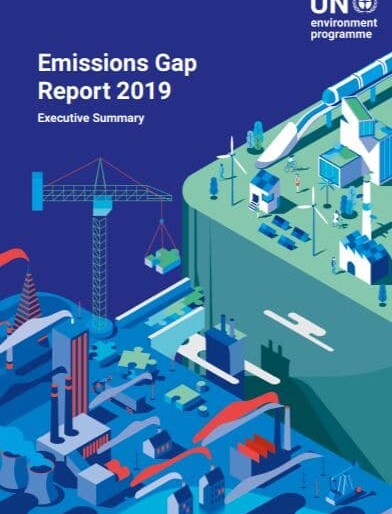- Deeper and faster cuts are now required
- Global greenhouse gas emissions have grown by 1.5 percent every year over the last decade. To stay within relatively safe limits, emissions must decline sharply, by 7.6 percent every year, between 2020 and 2030.
- Even if every country fulfills its current pledges under the Paris Agreement — and many, including the United States, Brazil and Australia, are currently not on track to do so — the Emissions Gap Report found average temperatures are on track to rise by 3.2 degrees Celsius from the baseline average temperature at the start of the industrial age.
- The International Energy Agency recently singled out the proliferation of sport utility vehicles, noting that the surge of S.U.V.s, which consume more gasoline than conventional cars, could wipe out much of the oil savings from a nascent electric-car boom.
By Semini Sengupta Read full NYTimes article here
With world leaders gathering in Madrid next week for their annual bargaining session over how to avert a climate catastrophe, the latest assessment issued by the United Nations said Tuesday that greenhouse gas emissions are still rising dangerously.
“The summary findings are bleak,” said the annual assessment, which is produced by the United Nations Environment Program and is formally known as the Emissions Gap Report. Countries have failed to halt the rise of greenhouse gas emissions despite repeated warnings from scientists, with China and the United States, the two biggest polluters, further increasing their emissions last year.
The result, the authors added, is that “deeper and faster cuts are now required.”
As if to underscore the gap between reality and diplomacy, the international climate negotiations, scheduled to begin next week, are not even designed to ramp up pledges by world leaders to cut their countries’ emissions. That deadline is still a year away….
….Separately, the World Meteorological Organization reported on Monday that emissions of three major greenhouse gases — carbon dioxide, methane and nitrous oxide — have all swelled in the atmosphere since the mid-18th century.
“We are sleepwalking toward a climate catastrophe and need to wake up and take urgent action,” said Alden Meyer, director of policy and strategy at the Union of Concerned Scientists, on a phone call with reporters Tuesday after the publication of the report….
….There are many ways to reduce emissions: quitting the combustion of fossil fuels, especially coal, the world’s dirtiest fossil fuel; switching to renewable energy like solar and wind power; moving away from gas- and diesel-guzzling cars; and halting deforestation….
….A number of countries around the world, including Canada and Norway, have made plans to reduce emissions at home while expanding fossil-fuel production for sale abroad, that report noted….


